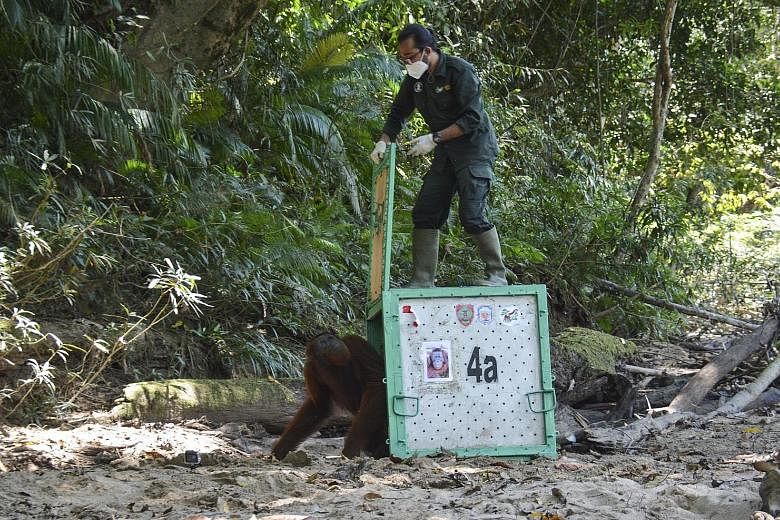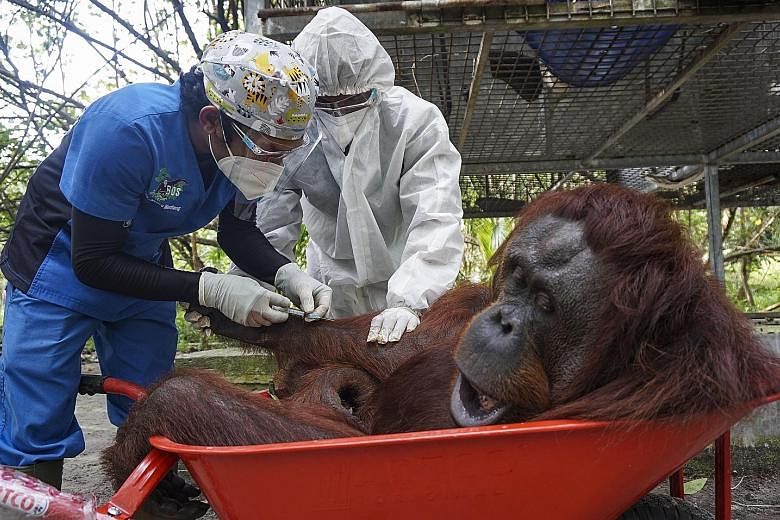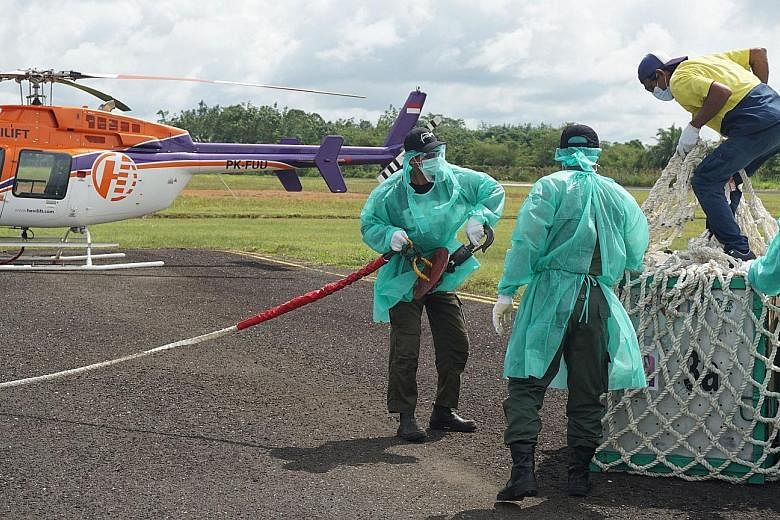JAKARTA • Ten rescued orang utans have been airlifted back to their natural habitat on Indonesia's Borneo island.
The dangers of coronavirus infection meant that this was the first release of orang utans into the wild in Indonesia in a year.
The animals were flown by helicopter over Borneo's dense jungle earlier this month to keep them away from days-long land and sea routes that could expose them to the virus.
Orang utans share 97 per cent of humans' DNA, so conservationists have been on high alert for signs of Covid-19 infection in the apes.
The pandemic has thrown up unprecedented conservation challenges. "For an entire year, we have not been able to release orang utans due to the global pandemic," said Mr Jamartin Sihite, chief executive of the Borneo Orangutan Survival Foundation (BOSF).
"We have implemented strict health protocols, and introduced mitigation plans to be enacted in the event of an orang utan contracting the virus. The use of a helicopter... helps reduce the risk of spreading Covid-19."
The fuzzy-haired apes were sedated with tranquillisers before the flight and shuttled using transport cages encased in netting.
At least one of the moon-faced animals banged on its cage's metal walls as it tried to make sense of the airborne mission.
The apes took a short boat trip after touching down, before arriving at the Bukit Batikap Protection Forest in Central Kalimantan, where they began swinging on vines.
Several apes were released into another forest in East Kalimantan.
Poaching and habitat loss were decimating the South-east Asian nation's orang utan population before the coronavirus emerged as another potential threat to the critically endangered species.
"If an orang utan shows symptoms of respiratory problems, it's possible that it has been infected with Covid-19," said Dr Vivi Dwi Santi, a veterinarian with BOSF.
AGENCE FRANCE-PRESSE



